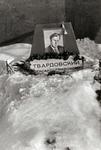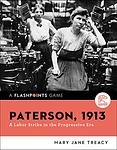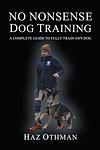The Greatest "Fiction, Poetry" Books From 1940 to 1949
Click to learn how this list is calculated.
This list represents a comprehensive and trusted collection of the greatest books. Developed through a specialized algorithm, it brings together 290 'best of' book lists to form a definitive guide to the world's most acclaimed books. For those interested in how these books are chosen, additional details can be found on the rankings page.
Genres
Poetry is a genre of literature that uses language to evoke emotion, paint vivid imagery, and convey complex ideas through the use of rhythm, meter, and sound. It is characterized by its use of figurative language, such as metaphors and similes, and its ability to capture the essence of a moment or experience in a concise and powerful way. Poetry can take many forms, including sonnets, haikus, free verse, and spoken word, and can cover a wide range of topics, from love and nature to politics and social issues. As a category for books, poetry offers readers a unique and intimate glimpse into the human experience, inviting them to explore the beauty and complexity of language and the world around them.
Countries
Date Range
Reading Statistics
Click the button below to see how many of these books you've read!
Download
If you're interested in downloading this list as a CSV file for use in a spreadsheet application, you can easily do so by clicking the button below. Please note that to ensure a manageable file size and faster download, the CSV will include details for only the first 500 books.
Download-
1. Arcanum 17 by André Breton
"Arcanum 17" is a surrealist exploration of love, loss, and resurrection set amidst the backdrop of World War II. Drawing inspiration from the legend of Melusina, the author uses the symbolism of this mythic figure to discuss the role of women in society and the destructive nature of war. The narrative also delves into themes of renewal, rebirth, and the power of the feminine, all while using the surrealist style to blend reality and dream in a poetic and philosophical discourse.
-
2. The Road by Harry Martinson
"The Road" is a reflective and poignant narrative that delves into the life of a young man who leaves his rural home to explore the urban landscape, seeking new experiences and understanding of the world. The protagonist's journey is both literal and metaphorical, as he navigates through various cities and encounters diverse people, each adding depth to his understanding of society and himself. The novel intricately portrays themes of isolation, the search for meaning, and the impact of industrialization on human connections and the environment, capturing the existential dilemmas of modern life.
-
3. A Street In Bronzeville by Gwendolyn Brooks
This book is a poignant collection of poetry that explores the lives and struggles of African Americans in the mid-20th century urban landscape. Through vivid imagery and emotional depth, the poems delve into themes of racial identity, social injustice, and the search for personal meaning within the confines of a segregated society. The poet's keen observations and lyrical mastery bring to life the vibrant community of Bronzeville, a neighborhood in Chicago, capturing both its beauty and its hardships, and offering a powerful commentary on the broader African American experience during this era.
-
4. Vasili Tyorkin by Alexander Tvardovsky
The book is a classic Soviet-era narrative poem that follows the eponymous character, an everyman soldier, through his experiences on the Eastern Front of World War II. With a blend of humor, pathos, and folk wisdom, the protagonist embodies the resilience and resourcefulness of the Soviet people during the war. Through a series of episodic adventures, the poem paints a vivid picture of life on the front lines, capturing the camaraderie among soldiers, the hardships of battle, and the indomitable spirit of the protagonist as he navigates the brutal realities of war with wit and cunning.
-
5. Poems Of André Breton by André Breton
This collection is a compilation of works by a seminal figure in the surrealist movement, showcasing a series of poems that delve into the depths of the unconscious mind. The poems are characterized by their dreamlike imagery, unexpected juxtapositions, and free association, reflecting the author's revolutionary approach to literature. Through his verse, the poet seeks to liberate thought from rational constraints and explore the vast possibilities of human imagination, often blurring the lines between reality and dream, sanity and madness, in a quest to capture the essence of surrealist philosophy.
-
6. Things by Francis Ponge
The book is a collection of prose poetry that delves into the essence and nature of everyday objects. Through meticulous and often philosophical descriptions, the author elevates the mundane to the level of art, inviting readers to reconsider the significance of the ordinary. Each piece serves as a meditation on the material world, exploring the intricate relationship between language and the physical entities it seeks to describe. The work challenges the boundaries between poetry and prose, ultimately offering a unique reflection on the way we perceive and interact with the "things" that populate our lives.
-
7. Complete Verse by Rudyard Kipling
This comprehensive collection brings together the entire range of verse from a celebrated British author, known for his deep engagement with the British Empire and its complexities. The anthology showcases a variety of poetic forms and themes, from the author's early, vivid ballads of imperial life, to his later, more reflective poetry. It includes his most famous works that have entered the public consciousness for their rousing rhythms and memorable lines, as well as lesser-known poems that reveal a more intimate and contemplative side of the poet. The collection is a testament to the author's versatility and enduring impact on English literature, offering insights into the cultural attitudes of his time while also exploring universal themes of adventure, courage, and identity.
-
8. Paterson by William Carlos Williams
The book is an epic poem that blends the everyday lives of the city of Paterson, New Jersey, and its inhabitants with the personal reflections of the poet. It is structured in five books and a fragment of a sixth, each delving into the complex relationship between the individual and the urban environment, exploring themes of identity, modernity, and the role of the poet in society. The work is characterized by its use of collage, incorporating letters, newspaper fragments, and historical documents, creating a tapestry of voices and experiences that reflect the diversity and dynamism of American life.
-
9. Complete Nonsense by Edward Lear
This book is a delightful collection of whimsical and absurd poetry and prose, celebrated for its nonsensical nature and playful language. It includes the author's most famous poem, which features an unlikely pairing of two creatures who set out to sea in a beautiful pea-green boat. The compilation is filled with fantastical characters, from the Jumblies to the Quangle Wangle, and showcases the author's unique talent for inventing quirky, fantastical worlds. The limericks, stories, and drawings within this volume have entertained both children and adults for generations, cementing its place as a classic in the genre of literary nonsense.
Reading Statistics
Click the button below to see how many of these books you've read!
Download
If you're interested in downloading this list as a CSV file for use in a spreadsheet application, you can easily do so by clicking the button below. Please note that to ensure a manageable file size and faster download, the CSV will include details for only the first 500 books.
Download




